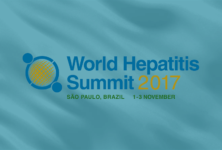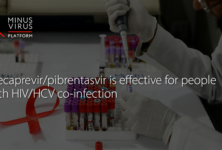Conditional marketing authorisations give patients access to important new medicines earlier
EMA publishes report with data collected between 2006 and June 2016
Conditional marketing authorisation (CMA) can speed up access to medicines for patients with unmet medical needs. Since 2006, a total of 30 medicines have received a conditional marketing authorisation. Medicines that were granted a CMA target seriously debilitating or life-threatening conditions such as HIV infection, breast cancer, severe epilepsy in infants or multi-drug resistant tuberculosis. 14 were orphan medicines, providing patients suffering from rare diseases with new therapeutic options. These are some of the findings of a report by the European Medicines Agency (EMA) to mark ten years of experience with CMA.
EMA’s report is a wide-ranging analysis of the positive impact this important tool has had in providing early access to new medicines for patients who previously had no or only unsatisfactory treatment options. It focuses on how CMAs are granted or refused and later converted into standard marketing authorisations. It also analyses the type, amount and timing of data provided to support these decisions.
Conditional marketing authorisation is one of the tools available to regulators to support the development of and early access to medicines that address unmet medical needs of patients in the European Union (EU). It allows the authorisation of medicines if the public health benefit of their immediate availability to patients outweighs the risk of an authorisation on the basis of less comprehensive data than normally required. Over a period of 10 years, no medicine with a CMA had to be revoked or suspended.
A CMA is valid for one year. As part of the authorisation, the company is obliged to carry out further studies to obtain complete data. EMA’s Committee for Medicinal Products for Human Use (CHMP) assesses the data generated by these specific post-authorisation obligations at least annually to ensure that the balance of benefits and risks of the medicine continues to remain positive. At the end of its assessment, the Committee recommends either the renewal or not of the CMA or its conversion into a standard marketing authorisation.
According to EMA’s analysis, marketing authorisation holders comply with the specific obligations imposed by the Agency. More than 90% of completed specific obligations did not result in major changes of scope and about 70% of specific obligations did not require an extension to the originally specified timelines.
The report shows that it took an average of four years to generate the additional data needed and to convert a CMA into a full marketing authorisation. This means that patients with life-threatening or seriously debilitating conditions can access promising medicines earlier.
The report also characterises the data on which CMAs have been granted and the additional data generated through specific obligations. This information could be of interest for those developing medicinal products, as well as patients, pricing and reimbursement bodies and other stakeholders.
The report also identifies a number of possible areas for improvement. These include:
- prospective planning of CMAs and early dialogue with EMA to support the generation of high-quality data, timely discussion of additional post-authorisation studies and their feasibility, and better data generation for completion of specific obligations;
- engaging other stakeholders involved in bringing a medicine to patients, in particular Health Technology Assessment bodies, to facilitate the generation of all data needed for decision-making through one development programme.
The full report is available together with an infographic that highlights the key findings of this analysis. The publication of EMA’s report underlines the Agency’s commitment to transparency.
It responds to discussions in the European Commission’s expert group on Safe and Timely Access to Medicines for Patients (STAMP), which highlighted interest in understanding the experience of conditional marketing authorisations in the EU.


 ПОИСК ПО САЙТУ
ПОИСК ПО САЙТУ  поиск по ресурсному центру
поиск по ресурсному центру 



